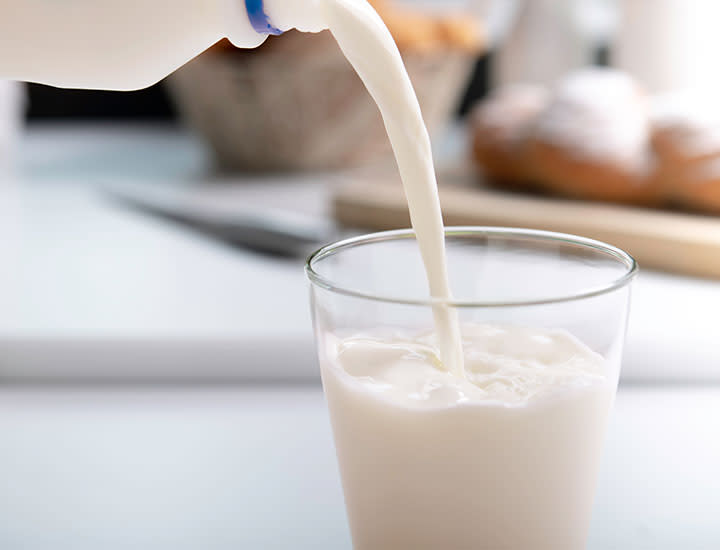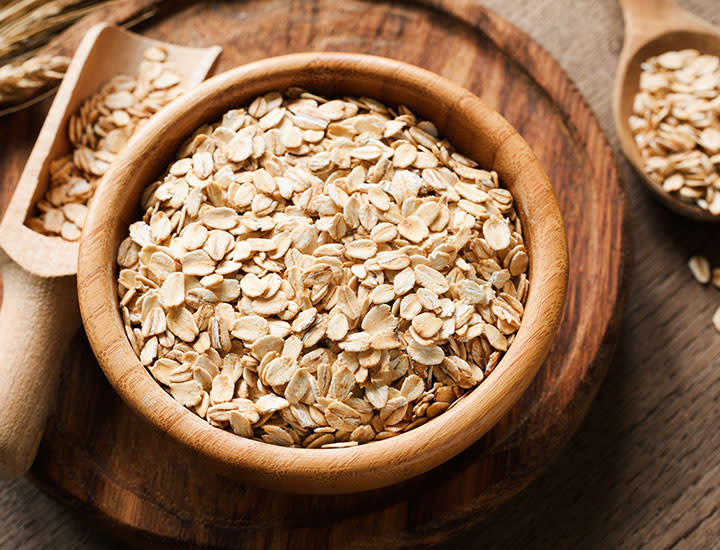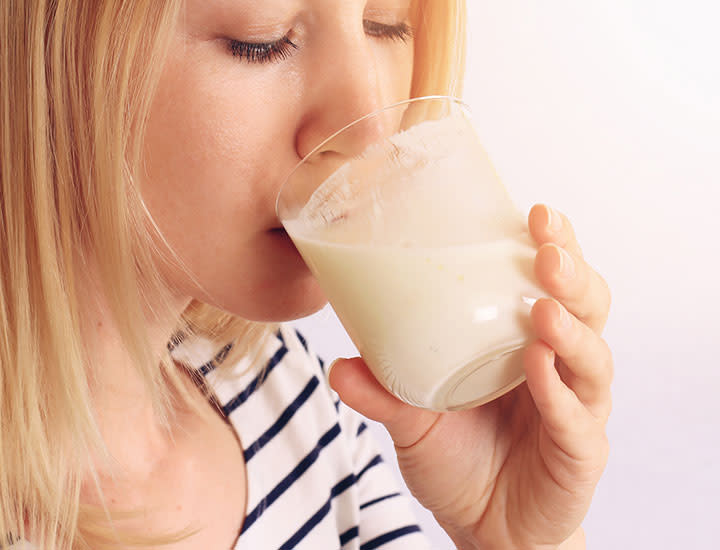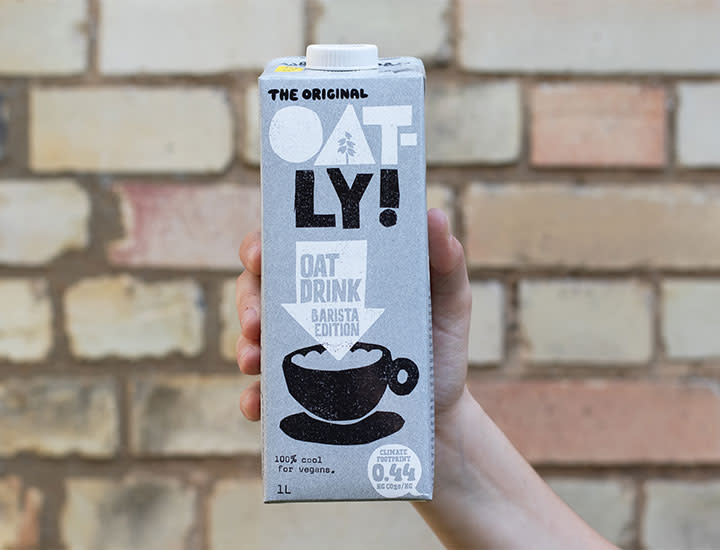This post has been updated since its initial publish date to include more expert insight.
For anyone who is lactose intolerant, vegan, or just a fan of the taste, oat milk is a convenient and delicious alternative to cow’s milk and is found in many non-dairy products and recipes. As the popular item becomes more and more trendy and ubiquitous (you’ve surely tried it in your latte by now), we couldn’t help but wonder if it is worth the hype, and if there might be any potential drawbacks to drinking it frequently.
We checked in with registered dietitians and health expertsSuzanne Fisher, founder of Women’s Cycling Nutrition and Fisher Nutrition Systems, and Trista Best, a registered dietitian at Balance One Supplements. Read on for expert tips and to learn more about a few reasons why oat milk has benefits when consumed in moderation, and important negative effects when not. They agree that, if consumed in excess, oat milk can lead to weight gain because popular brands are made with canola oil, fats, and sugar and often provide little to no protein.
Most Oat Milk Brands Contain Low Protein Levels
While oat milk is not inherently bad for you on its own (it is high in fiber and cholesterol free), the real danger is relying on it and not consuming other plant-based milks with higher protein levels in your diet, Fisher explains.
"People love oat milk for its creamy consistency and low allergen profile," Fisher says, "But despite these obvious positives, there are some nutrition drawbacks." Oat milk, she says, when compared to other plant-based dairy substitutes, is "lacking in terms of protein content per serving."
"A 1-cup serving contains usually between 3 to 4 grams of protein as compared to 8 grams in flax or even cow's milk," she adds. For individuals looking for a more equitable substitute for dairy milk, Fisher argues that oat milk may not be the answer.
"While oats have obvious health benefits and have been shown to improve lipid levels and stabilize blood sugar, the jury is still out if oat milk provides the effect," she continues. Fortified oat milk, she suggests, is a good source of calcium and vitamin D, which are both essential for strong, healthy bones.
For anyone on a gluten-free diet, apart from a lack of protein, something else to look out for when it comes to oat milk is if the oats within it are gluten-free. "Be careful if, on a gluten-free diet, that gluten-free oat was used during processing," Fisher notes, adding that flavored oat milk also contains sources of added sugar to be wary of, as well.
Best agrees, and adds that anyone with celiac disease or a gluten allergy should be wary of oat milk. "One con is that oat milk may not be gluten free like other milk alternatives," she says. "This is because though oats are naturally gluten-free, some are processed in facilities where gluten containing products are also manufactured." Because of this, Best warns that cross contamination may occur which can be harmful for those with celiac disease.
Additionally, Best says that oat milk is also "higher in carbohydrates than other dairy milk alternatives." Because it is sourced from a grain rather than a nut or other plant, the carb content is around "15 grams of carbohydrates per servings." This, she notes, is "significantly high" considering unsweetened almond milk is typically just 1 grams of carbs.
All in all, Fisher stresses that it's more about the type of oat milk you choose, advising to opt for an unsweetened version (check the ingredients to be fully sure) and not to select an oat milk that was artificially flavored. Sometimes, she shares, unsweetened versions "will also show some added sugar on the food label, despite having no sugar listed on the ingredient list."
Enzymes are used to break down the oats during processing when making this kind of milk, and the end result is the "sugar, Maltose, a high glycemic sugar that is responsible for the oat milk's sweet taste," she says. This sugar, Fisher concludes, could "raise blood sugar, a problem mitigated by combining oat milk with other nutrient-dense foods, such as high-fiber cereal or even cooked oats."
The Bottom Line
While this does not mean you have to give up your favorite oat milk entirely, Fisher helps point out that drinking it in moderation and also making room in your diet for other plant-based milks is ideal. Almond milk, for example, is relatively low in calories and contains lower amounts of carbs than cow’s milk. Soy milk is a great source of protein (as are the soybeans it is derived from) and can also be used as an alternative to cow's milk.
DJ Mazzoni RD, MS, CSCS, CDN from Illuminate Health recommends Hemp milk, which she says "is more nutritionally-dense than oat milk," noting that "it contains omega-3 fatty acids that are associated with improved health outcomes, and which are missing in the diet of many Americans." Overall, the general consensus among health experts regarding oat milk is that while it is fine in moderation, it will not provide you with enough protein alone, and visiting your doctor can help you create a diet that best suits your individual needs.



